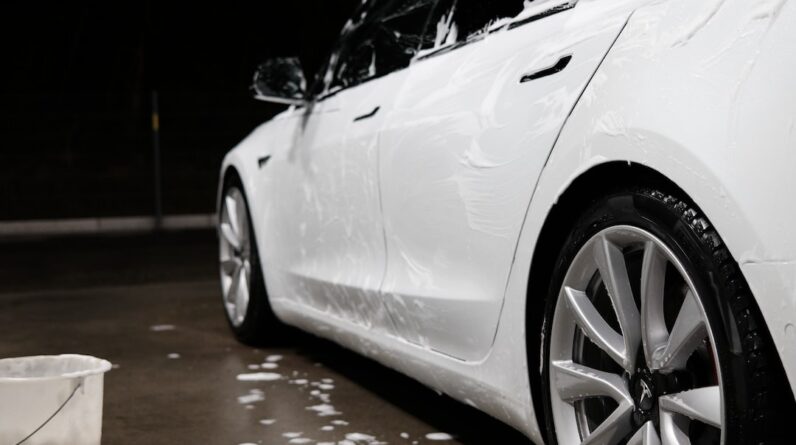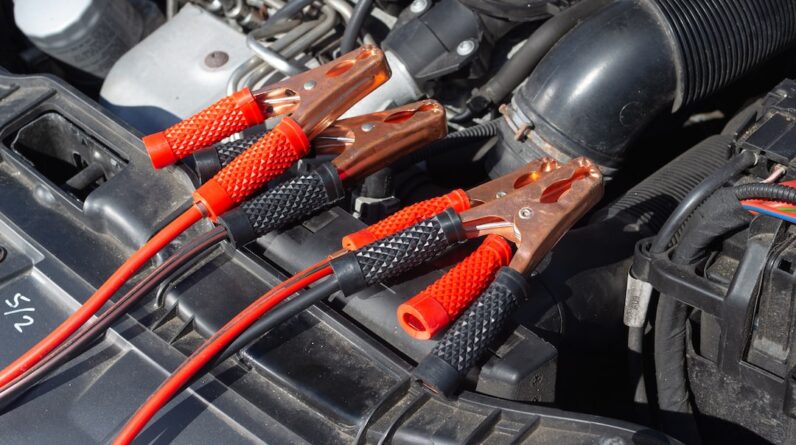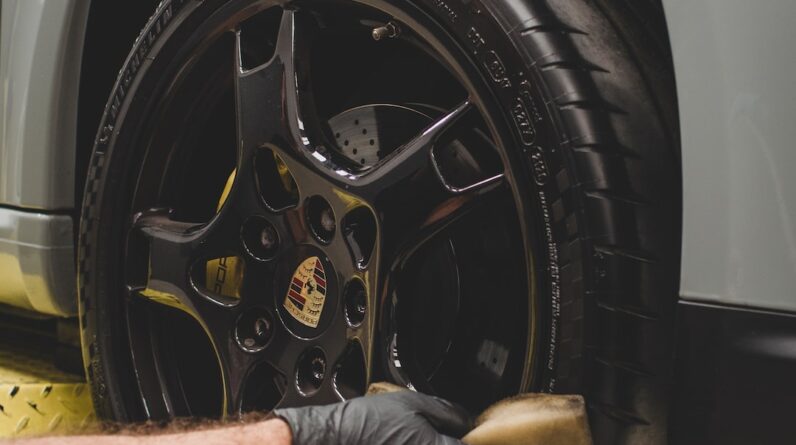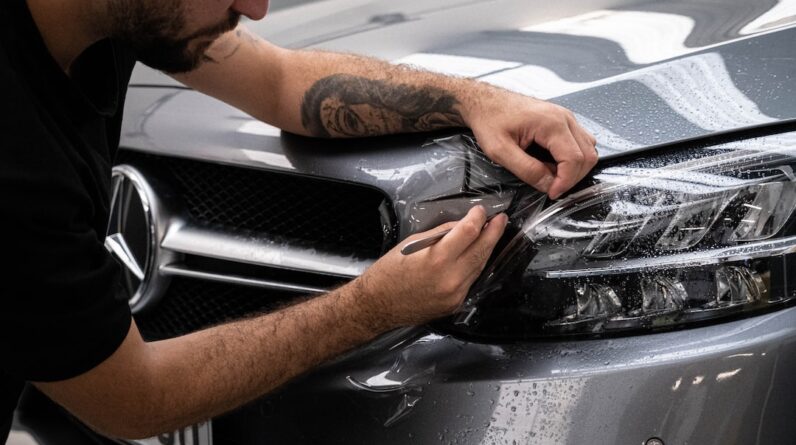Welcome to the world of car maintenance, where proper care and attention can keep your vehicle running like a well-oiled machine. Speaking of oil, let’s dive into the fascinating realm of car maintenance vs oil change.
Imagine your car as a finely tuned orchestra, with each component playing its part to create a harmonious symphony of performance. Just like a conductor needs to fine-tune every instrument, you too need to ensure every aspect of your car is in top shape.
At the heart of this symphony lies the oil change, a vital task in car maintenance. Think of it as a refreshing sip of water for your engine, cleansing it of impurities and ensuring smooth operation.
But car maintenance goes beyond just oil changes. It includes a whole host of other essential tasks like tire rotation, brake inspection, and fluid checks.
By regularly maintaining your car, you’ll experience a multitude of benefits. Improved fuel efficiency, enhanced safety, and prolonged lifespan are just a few rewards that await diligent car owners.
So, let’s embark on a journey to create a comprehensive car maintenance schedule, ensuring your vehicle performs at its peak, mile after mile.
Key Takeaways
- Regular car maintenance is crucial for keeping your vehicle running smoothly and avoiding costly repairs.
- Neglecting regular car maintenance can lead to costly repairs and breakdowns.
- Proper car maintenance, including oil changes and air filter replacements, can significantly improve fuel efficiency.
- Following manufacturer’s recommendations and guidelines for maintenance is important for optimal car performance.
Understanding the Importance of Regular Car Maintenance
Regular car maintenance is crucial for keeping your vehicle running smoothly and avoiding costly repairs down the road. Following a car maintenance checklist and scheduling regular car servicing ensures that your vehicle’s vital components, such as the engine, brakes, and tires, are in optimal condition.
Regular maintenance also helps identify any potential issues early on, preventing them from turning into major problems. Don’t underestimate the importance of regular car maintenance for the longevity and reliability of your vehicle.
The Role of Oil Changes in Car Maintenance
Don’t underestimate the importance of keeping up with scheduled maintenance on your vehicle. For instance, imagine driving your car for months without ever checking or replacing the fluid that helps ensure optimal engine performance.
Regular oil changes are a critical aspect of car maintenance. The frequency of oil changes depends on various factors such as the type of oil used, driving conditions, and the manufacturer’s recommendations.
Oil changes play a significant role in maintaining engine performance. They lubricate the engine components and remove contaminants.
Other Essential Car Maintenance Tasks
When it comes to maintaining your car, there are several essential tasks that you shouldn’t overlook.
First, regularly check and replace your air filters to ensure proper airflow and prevent debris from entering your engine.
Second, inspect and replace your brakes and brake pads for your safety and the overall performance of your vehicle.
Lastly, monitor fluid levels and replenish as needed to keep your car running smoothly and avoid any potential damage.
Make sure to stay on top of these key maintenance tasks to keep your car in top shape.
Checking and Replacing Air Filters
To ensure optimal performance, you should periodically inspect and replace the air filters in your vehicle. Neglecting this crucial maintenance task can result in reduced fuel efficiency, engine damage, and poor air quality inside the cabin.
When replacing cabin filters, make sure to choose high-quality filters that effectively trap dust, pollen, and other allergens. Cleaning and maintaining engine air filters prevent dirt and debris from entering the engine, prolonging its lifespan and improving overall performance.
Inspecting and Replacing Brakes and Brake Pads
Make sure you’re always aware of the condition of your brakes and brake pads to ensure a safe and smooth driving experience. Regular brake inspection is essential for identifying any signs of wear or damage. If you notice squeaking or grinding noises, reduced braking performance, or a pulsating brake pedal, it’s time for a brake pad replacement.
Neglecting this maintenance can lead to brake failure and jeopardize your safety on the road. Stay proactive and prioritize brake maintenance.
Monitoring Fluid Levels and Replenishing as Needed
Keep an eye on your fluid levels and top them up when necessary to ensure a smooth and worry-free driving experience. Here are four essential fluid levels to monitor as part of your preventive maintenance routine:
- Engine oil: Check the oil level regularly using the dipstick and add oil as needed to prevent engine damage.
- Coolant: Maintain the coolant level between the minimum and maximum markings to prevent overheating and engine damage.
- Brake fluid: Ensure the brake fluid is at the recommended level to ensure proper braking performance and safety.
- Power steering fluid: Check the power steering fluid level and add more if needed to maintain optimal steering control.
By regularly monitoring these fluid levels and replenishing as needed, you can avoid potential issues and keep your vehicle running smoothly.
Benefits of Regular Car Maintenance
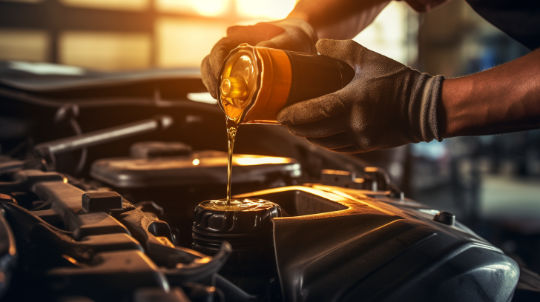
Regular car maintenance offers several benefits that every car owner should be aware of. Firstly, maintaining your car regularly can significantly improve fuel efficiency. This means that you can save money on fuel costs in the long run.
Secondly, regular maintenance can extend the lifespan of your car by preventing major breakdowns and expensive repairs.
Lastly, keeping up with maintenance can enhance safety on the road by ensuring that all components of your car are functioning properly, reducing the risk of accidents.
Improved Fuel Efficiency
By getting a car maintenance check, you can experience a smoother ride and feel like you’re gliding on a cloud of fuel efficiency. Regular car maintenance, such as changing the oil and air filters, can significantly improve fuel efficiency.
When your car is properly maintained, it runs more efficiently, reducing the amount of fuel it consumes. This not only saves you money at the pump, but also has a positive environmental impact by reducing emissions.
Extended Lifespan of Your Car
You’ll be amazed at how much longer your vehicle will last when you take good care of it through regular check-ups and proper upkeep. By investing in preventative maintenance, you not only ensure the extended lifespan of your car but also increase its resale value.
Regular oil changes, tire rotations, and fluid checks help prevent major issues down the road. Don’t underestimate the power of small, routine tasks in keeping your car running smoothly for years to come.
Enhanced Safety on the Road
Imagine driving with confidence, knowing that your vehicle’s equipped with the latest safety features that help protect you and your loved ones on the road. To ensure enhanced safety, it’s crucial to prioritize car maintenance. Here’s why:
Regular maintenance ensures that all safety systems, such as brakes and airbags, are functioning optimally.
Proper tire maintenance, including regular rotations and alignments, improves traction and reduces the risk of accidents.
Regularly changing your car’s oil helps maintain engine performance, reducing the chance of unexpected breakdowns.
Routine inspections and maintenance address potential issues before they become major safety concerns on the road.
Creating a Comprehensive Car Maintenance Schedule
To create a comprehensive car maintenance schedule, it’s important to regularly check and change the oil, as neglecting this can lead to engine damage and decrease fuel efficiency. Below is a sample car maintenance checklist to keep your vehicle in top condition. Check your car manufacturer for the correct frequency for each task:
| Maintenance Task | Frequency | Cost |
|---|---|---|
| Oil Change | Every 3,000 miles | $30 |
| Tire Rotation | Every 6,000 miles | $50 |
| Brake Inspection | Every 12,000 miles | $0 |
| Air Filter Replacement | Every 15,000 miles | $20 |
| Battery Check | Every 24,000 miles | $0 |
Regular car inspections are essential for maintaining safety on the road and ensuring the longevity of your vehicle.
Frequently Asked Questions
How often should I change my air filter in my car?
You should change your car air filter regularly to ensure optimal performance. Regular air filter changes improve engine efficiency, increase fuel economy, and prolong the life of your engine by preventing dirt and debris buildup.
Can I use any type of oil for my car’s oil change?
Using the wrong type of oil for your car’s oil change can reduce performance by up to 20%. Synthetic oil, while more expensive, offers better protection, improved fuel efficiency, and longer engine life.
What are some signs that my car needs a wheel alignment?
Some signs that your car needs a wheel alignment include uneven tire wear, pulling to one side while driving, and a steering wheel that is off-center. Common causes include hitting potholes and curbs. Regular wheel alignments are important to ensure proper vehicle handling and tire longevity.
Is it necessary to replace my car’s battery regularly, even if it’s still working?
Regular replacement of your car’s battery, even if it’s still functioning, is recommended to ensure optimal performance. Proper battery maintenance and understanding its lifespan are crucial for preventing unexpected breakdowns and inconvenience on the road.
How often should I have my car’s brakes inspected and serviced?
To ensure optimal car brake performance, it is recommended to have your brakes inspected and serviced at least once a year or every 12,000 miles, whichever comes first. This frequency helps maintain safety and prevent potential issues.
Conclusion
In conclusion, prioritizing regular car maintenance, including oil changes, is crucial for the longevity and optimal performance of your vehicle. Neglecting these essential tasks can lead to costly repairs and decreased fuel efficiency.
By following a comprehensive car maintenance schedule, you can ensure that your vehicle is in top condition at all times. For instance, a case study conducted by a leading automotive institution revealed that vehicles that received regular maintenance, including timely oil changes, had a 20% longer lifespan compared to those that did not.
Remember, investing in maintenance today will save you from expensive repairs tomorrow.


